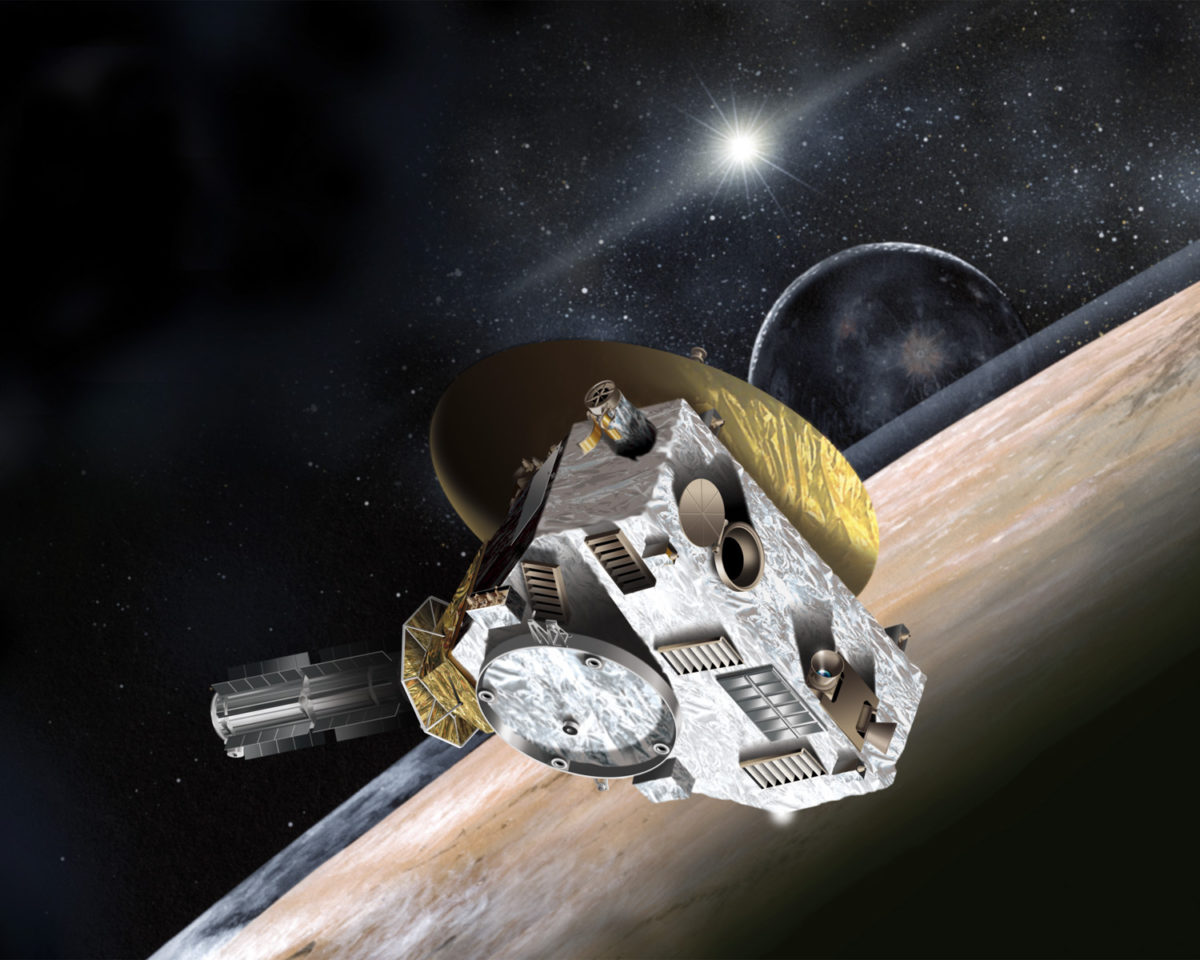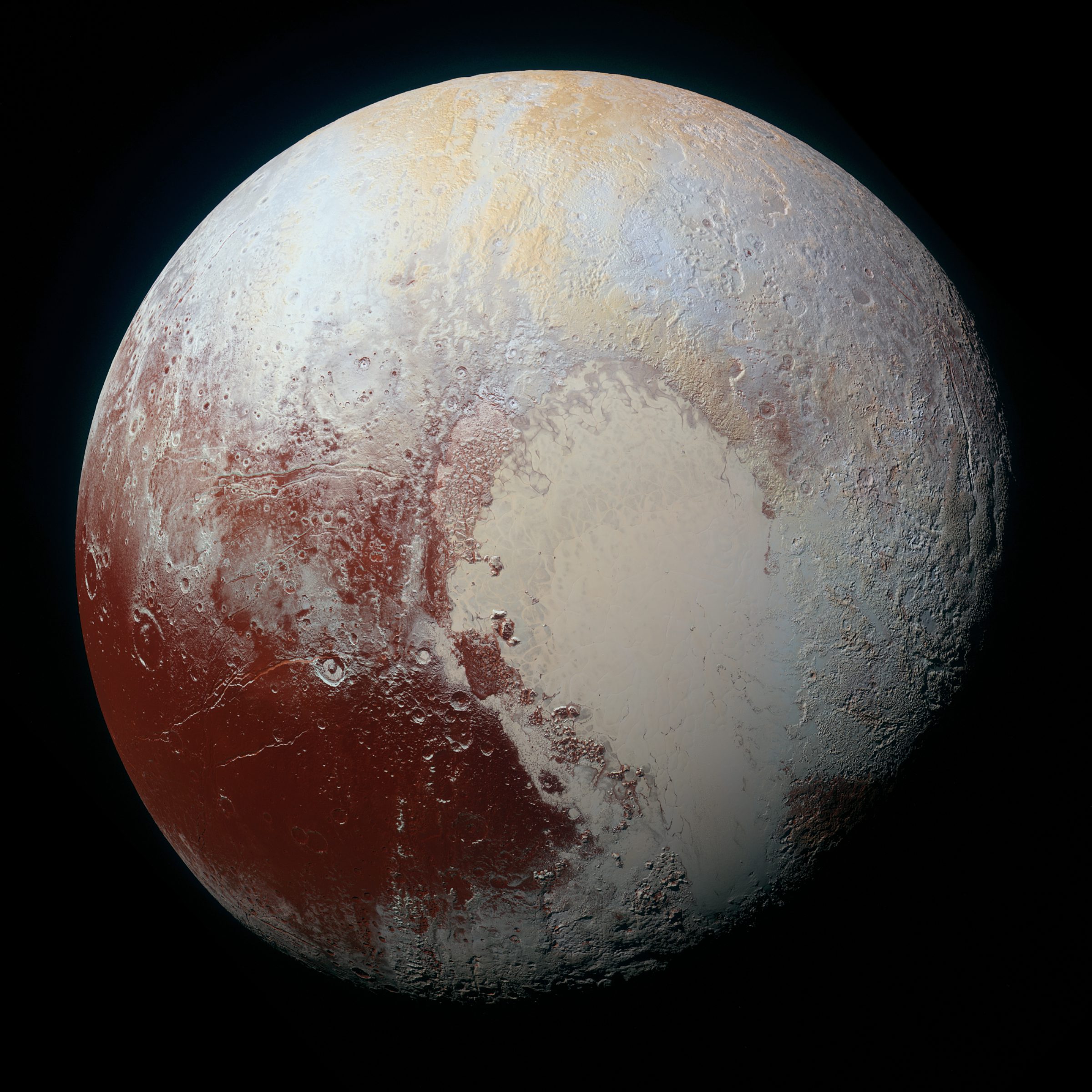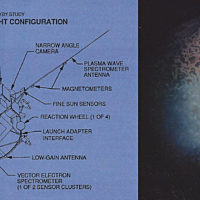The Pluto Campaign

New Horizons is a NASA probe that flew past Pluto in 2015. It is a successor to a long line of planned Pluto missions, none of which ever left the drawing board. The Planetary Society and its members worked for years to make this mission a reality.
New Horizons' immediate predecessor, the Pluto Express, got farther than most, but in the summer of 2000 NASA canceled the mission. In response, The Planetary Society delivered over 10,000 letters addressed to senators and house representatives on Capitol Hill, demonstrating the public support for the mission. Subsequently, NASA continued the mission development, and selected New Horizons from among several competing proposals.
But in 2001, the Pluto mission was again missing from NASA's budget for the following year. The Planetary Society again urged its supporters to write letters to their local representatives as well as to the Senate. Society Executive Director, Louis Friedman and then-President, Bruce Murray, also testified to Congress and a public meeting was held in Washington D.C. where a variety of panelists forcefully argued the case for a Pluto Mission.
Partly in response to the Society's public campaign, Congress changed course and earmarked $25 million for the Pluto mission, but only a few months later, the White House again postponed it indefinitely. In response, The Planetary Society once more called on its friends and supporters to make their voices heard on Capitol Hill. In turn, the Senate approved increasing the NASA budget to accommodate New Horizons. However, as the full Congress had not yet approved the extra funds, The Planetary Society organized a petition in support of New Horizons, which was signed by 10,000 people. This resulted in an omnibus spending bill of $110M for New Horizons as part of NASA's budget in fiscal year 2003 with an additional $130M for 2004.
Pushing Back the Frontier: How The Planetary Society Helped Send a Spacecraft to Pluto
It took 16 years and five spacecraft designs to get a mission to Pluto. The Planetary Society was there through it all, always striving to help NASA push back our solar system's frontier.
Extraordinarily, a year later, The House Appropriations Committee cut $55 million from the New Frontiers program of which New Horizons is part. This would have delayed the New Horizons launch by least a year, and its arrival at Pluto by several years. The Planetary Society once more urged its members to write to Congressional leaders on the U.S. Senate's appropriations committee, which had to agree with the cuts. In an impressive example of the power of the people, the appropriations committee approved full funding of New Horizons in the NASA budget for fiscal year 2004.
On January 19th, 2006, New Horizons
roared into space on board an Atlas V rocket. Nine years it encountered Pluto, a place where no spacecraft had gone before. Were it not for the efforts of The Planetary Society and its members and
supporters, it is possible that a Pluto mission would have never happened.

Pluto campaign timeline
July 2000
- Early indications that Pluto mission, “Pluto Express,” may be cancelled.
- The Planetary Society begins grassroots public campaign.
October 2000
- NASA cancels “Pluto Express.”
- The Planetary Society continues its campaign.
- The Planetary Society presents 10,000 postcards supporting the Pluto mission to congress. Half the postcards were addressed to Representative Dana Rohrabacher, Chair of the House Space and Aeronautics Subcommittee, and half to Senator Bill Frist, Chair of the Senate Science, Technology & Space Subcommittee, in Washington DC. They were delivered directly to them by Louis Friedman, Executive Director of The Planetary Society, and Bill Nye, “The Science Guy.”
November 2000
- Representatives James Walsh (R-NY), and Alan Mollahan (D-WV), the chair and ranking minority member, respectively, of the Committee on Appropriations in the US House of Representatives, sent a letter to NASA Administrator Dan Goldin asking for "a definitive explanation of NASA's plans for the Pluto-Kuiper Express mission....".
- The Solar System Exploration Subcommittee (SSES) writes to NASA in support of a mission to Pluto.
December 2000
- NASA considers recommendations of SSES.
- NASA calls for new mission proposals, reviving the Pluto mission.
February 2001
- Panelists Neil Tyson, Wes Huntress, Bill Nye, Alan Stern and Louis Friedman forcefully argue the case for a mission to Pluto at a public event in Washington.
- NASA cancels the Pluto mission bidding process, directing more funds to the Mars Exploration Program. The proposed budget enters the Congressional approval process.
March 2001
- Congress orders NASA to continue accepting proposals for the Pluto mission until it can review the Administration’s budget proposal for NASA.
April 2001
- The Administration budget proposal contains no funding for a mission to Pluto – effectively canceling the project. The Planetary Society asks congress to schedule hearings to consider the question, value and public interest of adding a small amount to the NASA budget to enable the Pluto mission to proceed on schedule.
July 2001
- NASA selects two mission proposals despite the funding uncertainties. Work will continue on the proposals in cooperation with the NASA Office of Space Science for the next three months, when the final selection will be made.
- Bruce Murray, President of The Planetary Society, strongly urges the Congress to support the language and funding in the FY 02 VA-HUD-IA Appropriations bill for the Pluto mission.
- The House adds $25 million for Pluto mission to the Administration’s budget proposal.
September 2001
- The Senate approves $30 million funding that “should be used to initiate appropriate spacecraft and science instrument development as well as launch vehicle procurement" for the Pluto mission.
November 2001
- NASA picks the New Horizons proposal. The New Horizons team is led by Principal Investigator S. Alan Stern, director of the Department of Space Studies at the Southwest Research Institute, and also includes major partners at the Johns Hopkins University Applied Physics Laboratory; Stanford University; Ball Aerospace; NASA’s Goddard Space Flight Center; and the Jet Propulsion Laboratory. In order to move forward, New Horizons must now pass a NASA confirmation review that will address the risks involved and the regulatory approval required for the spacecraft's nuclear power-source.
April 2002
- Bush Administration decides to postpone the entire outer planets program indefinitely, including New Horizons. It says that NASA will begin two new initiatives - a line of mid-sized missions called New Frontiers, as well as nuclear propulsion development for future outer planets missions.
- A statement by The Planetary Society is released and forwarded to the House of Representatives Committee on Appropriations and the U.S. Senate Appropriations Committee among other bodies strongly urging the decision be overturned. Scientific American, Astronomy, Nature, Mercury and other publications all come out in strong support for including the Pluto mission in the 2003 budget.
July 2002
- A National Academy of Science report conducted by the National Research Council endorses the New Horizons mission as a top priority of planetary exploration for this decade. The Planetary Society calls on Congress to restore funding for “New Horizons” in light of the endorsement.
- Wesley T. Huntress, President of The Planetary Society, writes on behalf of the Society to members of the U.S. Senate’s Appropriations Committee, scheduled to act on the NASA budget, urging them to restore funding to the mission.
- The U.S. Senate’s Appropriations Committee adds space science funds to the NASA budget. The action is praised by Society Executive Director Louis Friedman, who also warns that the action still must be passed by the House Appropriations Committee and the full Senate.
October 2002
- The House Appropriations Committee recommends increasing NASA’s budget to accommodate the New Horizons mission.
November 2002
- The Planetary Society presents Congress with a petition signed by 10,000 people urging support for New Horizons.
February 2003
- President Bush approves an omnibus spending bill of $110 million for New Horizons as part of NASA’s budget in fiscal year 2003 with an additional $130 million (yet to be approved) for 2004.
September 2003
- The House Appropriations Committee earmarks $55 million in cuts from the New Frontiers program of which New Horizons is part. This would delay the launch by at least a year. The Planetary Society urges its members to write to Congressional leaders on the U.S. Senate’s Appropriations Committee, which must approve the cuts.
- The U.S. Senate’s Appropriations Committee approves full funding of New Horizons in the NASA budget for fiscal year 2004.


 Explore Worlds
Explore Worlds Find Life
Find Life Defend Earth
Defend Earth


